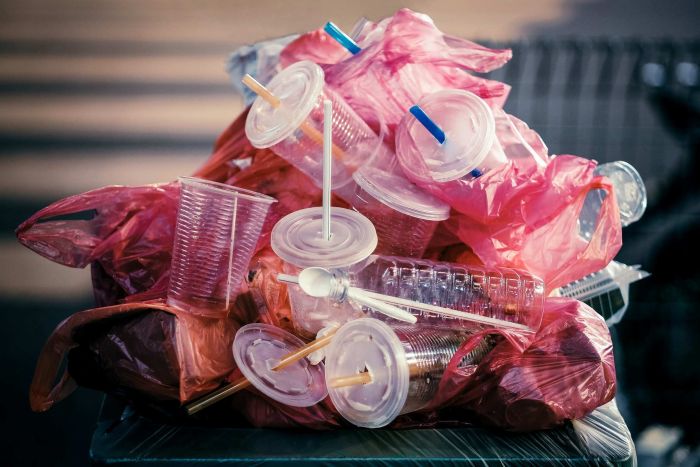Is a substitute for plastic coming anytime soon

Single-use plastics aren't the only ubiquitous plastics in our modern world. (Getty Images: Rosley Majid / EyeEm)
For most of us, hearing the world plastic makes us think of single-use plastics like plastic bags or disposable plastic water bottles, but plastic covers a much wider variety of materials than that.
They're everywhere and have become an inescapable part of our lives, due to their versatility, flexibility, durability, affordability and because they're relatively lightweight.
"The thing which I feel the public miss, is just how ubiquitous plastics are," said chemist Michelle Coote of the Australian National University.
If we threw away all plastics, we wouldn't have smartphones or insulation on our wires, Professor Coote pointed out.
Key points
- Plastics are versatile, flexible, durable and cheap
- These benefits become problems when we are trying to dispose of them
- Dealing with plastic waste requires both scientific and social solutions
"I think people don't realise for example, all the plastic that goes into an aircraft, is in part what makes it possible for it to fly."
Most plastics play a useful role by taking pressure off natural materials like wood, metal, leather, natural rubber and ivory, she said, and are in many ways cheaper and less harmful to the environment that their natural alternatives.
"It is not clear to me that the environment could sustain our current population without synthetic materials."
Tons of plastic
This isn't to suggest that plastic is a good thing for the environment.
Since we first started mass producing it in the 1950s we've produced 8.3 billion tonnes of plastic, a 2017 Science Advances paper calculated.
And the bad news is that most of this plastic is still with us.
The authors found that, as of 2015, 6.3 billion tonnes of plastic waste had been generated, but only around 9 per cent of that had been recycled.
The rest had either been incinerated (12 per cent) or left to accumulate in landfill or the environment (79 per cent).
What is plastic?
- Plastics are a type of polymer, a molecule made of small repeating units which join up to become a very long, larger chemical molecule
- Scientifically speaking not all polymers are plastics, although the terms are often used interchangeably in common parlance
- Cellulose, proteins and silk are all examples of naturally-occurring polymers
- Plastic polymers, along with chemical additives added during the production process to improve the performance, functionality or life of the plastic, give us the vast range of materials we use today
In 2016 alone, we produced 396 million tonnes of plastic, equivalent to 53 kilograms for every person on the planet.
Another study found around 40 per cent of that was for single-use products.
World Bank figures quoted in a recent report by Royal Society Te Aparangi (the Royal Society of New Zealand) on plastics in the environment showed Australians produce 117 grams of plastic waste per person per day.
That might not sound like a lot, until you realise that's over 42kg per person per year. read more
